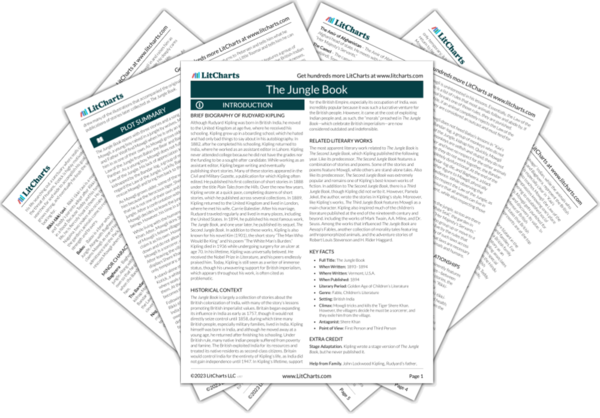Nag’s hood represents the qualities of Indian culture that British Imperialists—including Kipling himself—feared. In the story “Rikki-tikki-tavi,” Nag is a male cobra who possesses unique markings on his hood, which he says are a gift from Brahm. In Hinduism, Brahm is the original creator of the universe and thus the most powerful god from whom one could receive a blessing. However, despite his blessings, Nag is the villain of “Rikki-tikki-tavi.” Other than his equally conniving and dangerous wife, Nagaina, the rest of the animals in the garden hate him and wish death upon him. Additionally, Nag is a threat to the mongoose Rikki-tikki-tavi and the British family he protects. The relationship between Nag and the British family mirrors how Kipling and his fellow imperialists regarded the Indian people they colonized, seeing them as dangerous and savage threats to the wellbeing of British people living in India. Moreover, the link between the markings on Nag’s hood and Hinduism underscores The Jungle Book’s broader portrayal of Indian culture as inferior to the western ideals of the British Empire.
Nag’s Hood Quotes in The Jungle Book
‘Who is Nag?’ said he. ‘I am Nag. The great God Brahm put his mark upon all our people, when the first cobra spread his hood to keep the sun off Brahm as he slept. Look, and be afraid!’

Unlock explanations and citation info for this and every other The Jungle Book quote.
Plus so much more...
Get LitCharts A+









